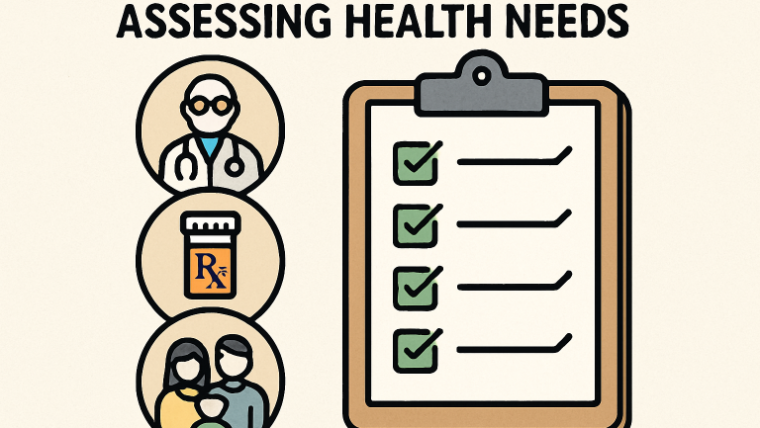Table of Contents
Family caregivers play a crucial role in supporting their loved ones, often stepping in to provide physical, emotional, and financial care. Despite their importance, many people do not fully understand the challenges that caregivers face daily. These unsung heroes typically juggle their responsibilities while navigating the complex health care system, often without adequate resources. The landscape of caregiving continues to evolve, bringing new challenges and considerations to those who take on this significant responsibility.
The Demographics of Family Caregivers
Contrary to popular belief, family caregivers are not confined to a single demographic group. They can be spouses, children, siblings, or even close friends, each providing varying levels of support based on personal circumstances. The majority of family caregivers are middle-aged women, yet statistics indicate that men contribute significantly, often handling more hands-on tasks than their female counterparts.
This diverse caregiving population spans various economic backgrounds, with many individuals balancing caregiving with paid employment. The rising cost of long-term care and the limitations of insurance often leave families to fill the gap. Those who are employed as a caregiver gain valuable skills in time management, organization, and compassionate support while managing multiple responsibilities. Though this role can be demanding, it offers personal growth and a sense of fulfillment, underscoring the importance of strong support systems to help caregivers maintain balance and well-being.
The Emotional Toll on Caregivers
While providing care can be fulfilling, it can take a significant emotional toll on caregivers. Feelings of isolation, anxiety, and stress often accompany the role, leading to mental health issues. Many caregivers report feeling overwhelmed by their responsibilities, which can strain relationships with family and friends. Studies show that caregivers are twice as likely to experience depression and anxiety compared to those who are not caregivers.
The constant pressure to ensure their loved ones receive appropriate care can lead to burnout, impacting physical health as well. Regular breaks and respite care can help alleviate some of these feelings, allowing caregivers the chance to recharge and maintain their emotional well-being. Caregivers need to recognize these emotional challenges and seek help when necessary, whether from professional resources or support groups.
The Financial Impact of Caregiving
The financial implications of caregiving can be staggering, with many family members often sacrificing their income to provide care. According to a report by AARP, caregivers in the United States spend an average of $7,000 annually on out-of-pocket expenses related to caregiving, including medical supplies and transportation. These costs can create significant financial strain for those who already face economic challenges.
This financial burden is compounded by the lack of sufficient financial support, as most insurance policies do not cover long-term caregiving needs appropriately. Families must discuss financial planning early on when a caregiving role is established, ensuring they are better prepared to manage expenses while supporting their loved ones. Understanding the true costs of caregiving can lead to better decision-making regarding care options and budgeting.
The Importance of Community Support
Community support is vital for family caregivers, providing them with resources and connections to mitigate the challenges they face. Many communities offer caregiver support programs, workshops, and respite care services designed to assist families. These programs offer practical support and serve as emotional outlets, allowing caregivers to connect with others who understand their situation.
Engaging with these resources can empower caregivers to seek assistance and avoid feelings of isolation. Online forums have become a popular way for caregivers to connect, share experiences, and offer each other encouragement. By developing a robust support network, caregivers can better navigate the complexities of their responsibilities, leading to improved health and job satisfaction in their roles.
Legal Considerations for Caregivers
Caregiving can involve various legal considerations that are often overlooked by family members. Understanding these legal aspects is critical in ensuring the rights of both the caregiver and the person receiving care are protected. Powers of attorney and healthcare proxies are important documents that allow caregivers to make medical decisions on behalf of their loved ones.
Family members should discuss these topics ahead of time to ensure preferences and wishes are clear, preventing potential conflicts later. It’s important to be familiar with the Americans with Disabilities Act and other regulations that may impact caregiving duties. Some caregivers may be entitled to leave under the Family and Medical Leave Act (FMLA), which allows for job-protected unpaid leave in certain circumstances.
Training and education are critical components that can enhance caregiving capabilities. Many caregivers find themselves unprepared for the medical and emotional aspects of providing care. Educational programs can provide valuable skills and knowledge. Workshops often cover vital topics such as medication management, chronic disease care, and effective communication techniques with healthcare workers.
Training programs prepare caregivers for their roles and boost their confidence and competence in managing various caregiving responsibilities. Seeking training can lead to better caregiving outcomes and improved quality of life for both caregivers and those in their care. Exploring opportunities such as Home Health Aide Jobs in Philadelphia can connect caregivers with roles and offer structured training, hands-on experience, and professional support, helping them develop strong caregiving skills while delivering quality in-home care.

In recognizing the challenges faced by family caregivers, it becomes clear that they are a vital part of our healthcare system. Their sacrifices and devotion often go unnoticed, yet their contributions keep families intact during difficult times. By supporting and empowering caregivers through education, resources, and community action, we reinforce the value of their hard work, allowing for a healthier family dynamic.



